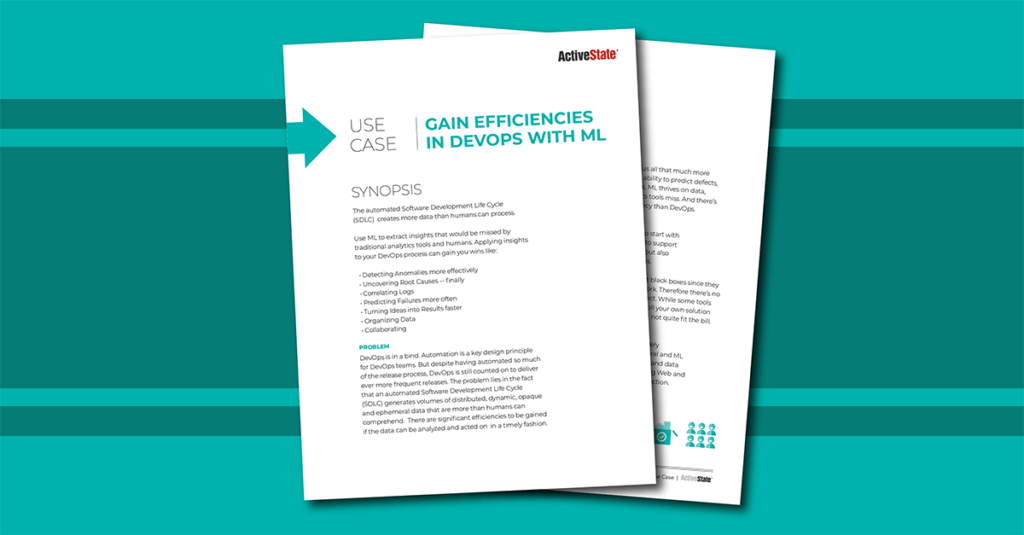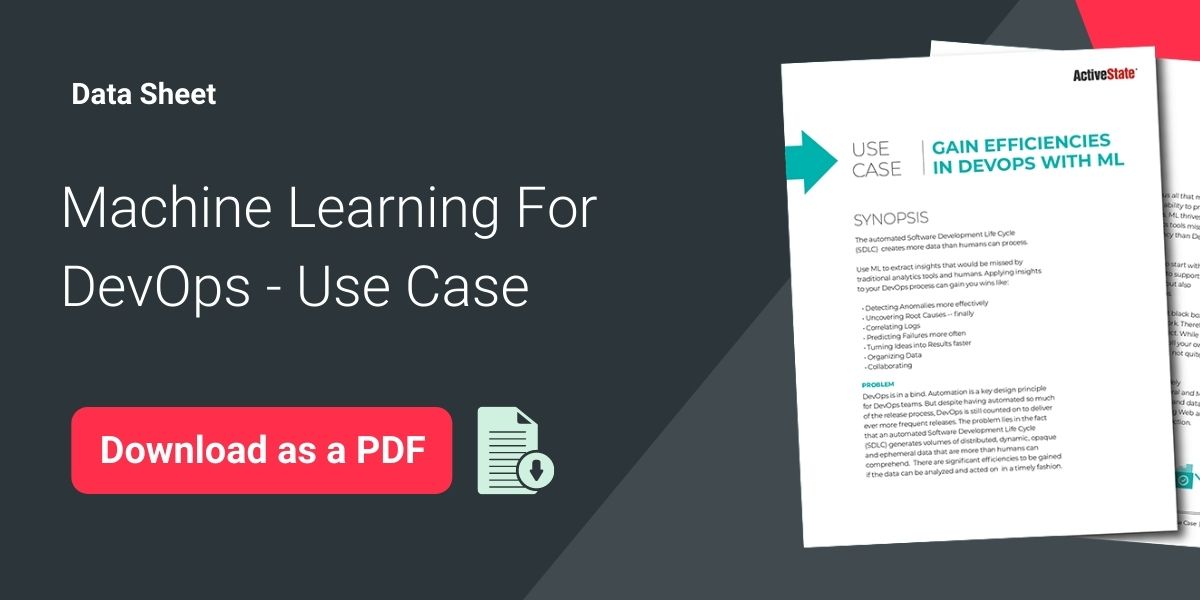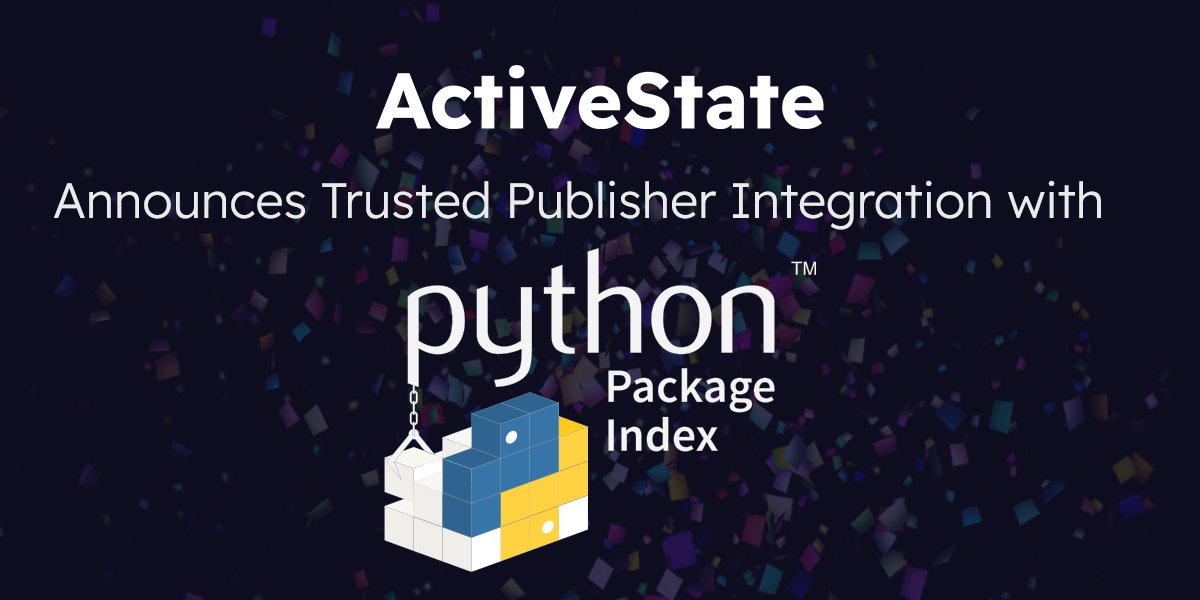Machine Learning for DevOps – Use Case
Gain Efficiencies In Devops With ML
The automated Software Development Life Cycle (SDLC) creates more data than humans can process. Use ML to extract insights that would be missed by traditional analytics tools and humans. Applying insights to your DevOps process can gain you wins like:
- Detecting Anomalies more effectively
- Uncovering Root Causes — finally
- Correlating Logs
- Predicting Failures more often
- Turning Ideas into Results faster
- Organizing Data
- Collaborating
Problem
DevOps is in a bind. Automation is a key design principle for DevOps teams. But despite having automated so much of the release process, DevOps is still counted on to deliver ever more frequent releases. The problem lies in the fact that an automated Software Development Life Cycle (SDLC) generates volumes of distributed, dynamic, opaque and ephemeral data that are more than humans can comprehend. There are significant efficiencies to be gained if the data can be analyzed and acted on in a timely fashion.
Solution
Machine learning (ML) is really geared toward making us all that much more efficient and empowered in our daily lives. But it’s ML’s ability to predict defects, failures and trends that makes ML of interest to DevOps. ML thrives on data, extracting insights that humans and traditional analytics tools miss. And there’s no role in software that can benefit from greater efficiency than DevOps.
Choose The Right ML Tool
When setting out to build an ML solution, it’s important to start with the right foundation. Your platform and tooling will need to support not only your data engineering and modelling initiatives, but also the deployment of trained models into various applications.
Most of the next-gen DevOps tools that support ML are just black boxes since they provide no visibility into how their underlying algorithms work. Therefore there’s no way to determine whether or not their conclusions are correct. While some tools do expose their controls, it may be more productive to just roll your own solution rather than spending time wrestling with tooling that might not quite fit the bill.
Python, The Language Of Choice For ML
Open source is driving all of the innovation in ML. Python, widely considered the tool of choice for data science projects in general and ML initiatives in particular, features the bulk of all open source ML and data engineering libraries. And, especially important, Python’s strong Web and API frameworks can facilitate operationalizing models in production.
For DevOps, Python’s ML functionality is key to helping identify trends over time from time-series data, correlating information across different monitoring tools, or predicting failures. For example, TensorFlow abstracts away much of the complexity of neural network creation, simplifying tasks like image recognition, speech and natural language processing. Scikit-Learn would be more appropriate for performing anomaly detection, such as when looking for root cause or detecting exceptions in “normal” processing.
But Python’s strong Web and API frameworks can also help overcome issues with the last mile. For example, whether you need a full stack Web framework like Django or a lightweight, extensible one like Flask, both have excellent Web API libraries that can simplify the creation and exposure of your model in production applications.
Standardize Python Across Teams
Recall the start of your DevOps journey: the key to success was getting development and operations to work together. This is also true for the successful application of ML in DevOps. In this case, having a standard Python environment across your data engineering, modeling and implementation teams removes barriers to collaboration, speeds time to production, and improves chances for success. When standardizing, work with a vendor that can help you focus your efforts on high-value work.
Although open source Python provides many of the tools and libraries for ML, teams can waste days on the low-value work of installing and configuring packages before they can start coding. ActiveState’s Python, ActivePython, not only comes pre-compiled with the most popular open source packages for ML, but is also pre-optimized for compatibility and speed, ensuring DevOps teams can be productive right out of the box.
Wins (AKA Results)
- Detect Anomalies – Identify exceptions in normal processing to help solve root cause.
- Uncover Root Cause – Spot insights in the data not visible with traditional tools.
- Correlate Logs – E.g discover whether # of bugs correlates to # of production pushes.
- Predict Failures – Anticipate outages and downtime.
- Turn Ideas Into Results – Rapidly build & evaluate models.
- Organize Data More Easily – Automate the bookkeeping of metadata.
- Collaborate Better – Share code and annotations with colleagues.
What is the ActiveState Platform?
ActiveState is the de-facto standard for millions of developers around the world who have been using our commercially-backed, secure open source language distributions for over 20 years. With the ActiveState Platform, developers can now automatically build their own Python, Perl or Tcl Environments for Windows, Linux or Mac—all without requiring language or operating system expertise.
How to try the ActiveState Platform
You can try the ActiveState Platform by signing up for a free account using your email or GitHub credentials. Or sign up for a free demo and let us show you how we can support your Python 2 application(s).




